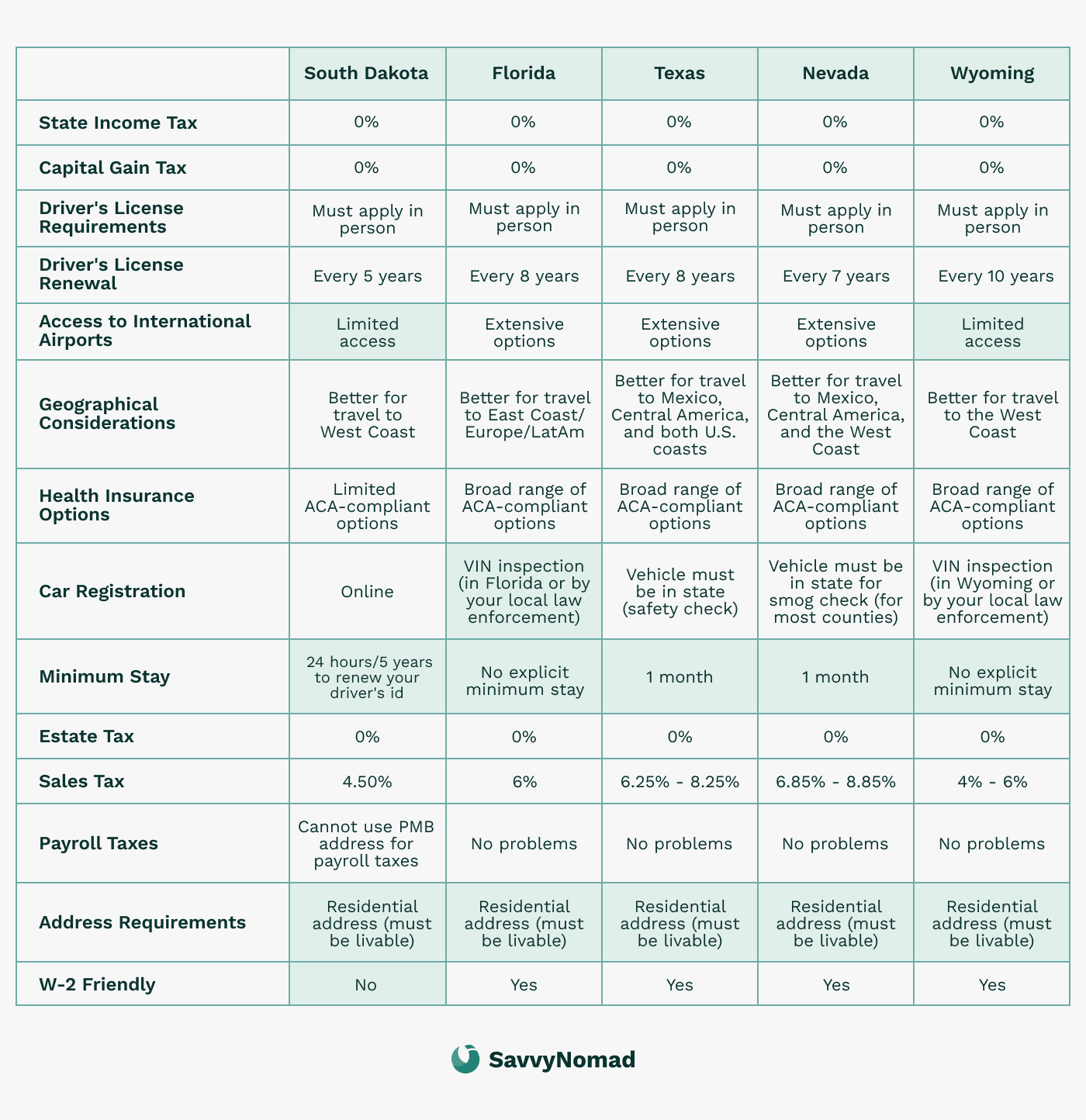How to leave Arkansas residency?

Thinking about leaving Arkansas and moving to a new state? Whether you’re chasing better job opportunities, looking to retire in a tax-friendly state, or simply want a change of scenery, understanding how to officially change your residency is key to avoiding unnecessary taxes.
Arkansas has specific rules and regulations for determining if you’re still considered a resident, so it’s important to follow the right steps to make sure you’re no longer on the hook for Arkansas taxes.
This guide will walk you through everything you need to know—from establishing a new home in another state to cutting ties with Arkansas, and even how to handle any ongoing tax responsibilities for Arkansas-based income.
Steps to leaving Arkansas residency
Step 1: Establish a new domicile
Leaving Arkansas residency starts by setting up a new home and making it clear that your new state is your permanent residence. This involves more than just moving; you need to show your intent to stay there for the long term.
Here’s how to do it:
1) Establish new residency
- Secure a residential address: One of the first steps is getting a place to live in your new state. Renting or buying a home shows that you’re serious about establishing residency. States like Florida even offer tax benefits, like the homestead exemption, which can save homeowners on property taxes.
This can be especially useful for digital nomads and expats who want a Florida documentation footprint in a tax-friendly state, while recognizing that the address itself does not guarantee any particular tax outcome or acceptance by every agency or institution.
- File a Declaration of Domicile: In states like Florida, you can file a legal document stating that your new state is now your permanent home, making it official.
Residency guides:

2) Relocate your belongings
Moving your personal items to your new home, like furniture, vehicles, and other essentials, is a solid indicator that you’ve moved for good.
3) Spend time in your new state
To strengthen your case, spend as much time as possible in your new state. If you’re constantly back and forth to Arkansas, it might raise red flags with tax authorities, so try to limit your time there.
4) Transfer IDs and vehicle registrations
Make sure to update your driver’s license and vehicle registration to your new state. This is a strong signal that your primary residence is no longer in Arkansas.
5) Register to vote
Register to vote in your new state if you are eligible. Voter registration is a strong supporting indicator of your commitment to that state, but it is considered together with many other facts and does not by itself determine your tax residency.
6) Update financial accounts
Notify your banks, credit card companies, and other financial institutions about your new address. This ensures all your official documents and accounts reflect your new residency.
7) Notify your employer
Ask your employer to update your payroll and tax withholdings to reflect your new state of residence. This helps prevent Arkansas state income tax from continuing to be withheld after you move, although your actual tax liability will still depend on your own filings and Arkansas rules.

Step 2: Sever ties with Arkansas
Once you have established your new domicile, the next important step is to cut any remaining ties with Arkansas. This helps reduce the risk that the state continues to consider you a resident for tax purposes.
Here’s what you need to do:
1) Close Arkansas financial ties
- Close local bank accounts: If you have any Arkansas-based bank accounts, it’s a good idea to close them or transfer your funds to a bank in your new state. This shows that your financial activity is now rooted in your new residence.
- Update personal records: Update your address with the IRS, Social Security, and any other relevant entities. Keeping all personal and financial records in your new state helps solidify your move.
2) Sell or lease property
If you own property in Arkansas, selling or leasing it out can help demonstrate that you no longer plan to live there. Long-term leases show you don’t have personal access to the property, which helps prove you’ve moved.
3) Cancel local subscriptions/services
Cancel or transfer any Arkansas-based services, like gym memberships or utility services, to your new state. Keeping them active may suggest you still have ties to Arkansas.
4) Transfer healthcare and insurance
Finding new healthcare providers in your new state and updating your health insurance information can be another clear indicator that your life is now based elsewhere. Be sure to also update auto and home insurance policies to your new location.
Step 3: Time spent outside Arkansas
To successfully leave Arkansas residency, it is important to limit the amount of time you spend in the state after your move. Arkansas treats you as a resident if you are domiciled in the state, or if you maintain a permanent place of abode in Arkansas and spend in the aggregate more than six months of the tax year within the state, which many people approximate as more than about 183 days.
Here’s how to ensure that you aren’t classified as a Arkansas resident:
183-day rule
- Stay well under more than six months in Arkansas: If you maintain a permanent place of abode in Arkansas and spend in the aggregate more than six months of the tax year within the state, Arkansas law treats you as a resident. To support your nonresident position after you move, you should aim to spend clearly less than six months in Arkansas each year, which many people track as fewer than about 183 days, and plan your travel carefully.
- Maintain travel records: It’s crucial to maintain detailed records of your time spent outside Arkansas, such as flight tickets, hotel receipts, or any other documents that can prove you were not in the state. These records will be useful if tax authorities ever question your residency.

Step 4: Arkansas-sourced income
Even after you’ve left Arkansas residency, you may still have ongoing tax responsibilities if you’re earning income from sources within the state. Here’s how to manage that:
1) Ongoing tax responsibilities
If you continue to earn income from Arkansas, such as rental income, business profits, or wages, you will need to file non resident tax returns. Non resident returns are structured so that only income from Arkansas sources is taxed, while the rest of your income is not taxed by Arkansas.
2) Rental or business income
If you own rental properties or businesses in Arkansas, the income generated will continue to be subject to Arkansas taxes even after you establish residency elsewhere. It is a good idea to work with a tax professional to handle the complexities of filing and to help you meet all of your tax obligations.
Arkansas’s residency tests
Arkansas uses three main tests to determine residency for income tax purposes, as outlined in Individual Income Tax Regulation 2.26-51-102(9):
1) Domicile test
Arkansas will still consider you a resident if you maintain your domicile in the state. Simply moving out temporarily does not automatically change your residency. You must establish a new permanent home in another state to sever this tie and demonstrate your intent to stay there.
2) Day count test
If you have a permanent residence in Arkansas and spend more than six months (183 days) in the state, you will be considered a resident. Temporary stays don’t count as a permanent place of abode.
3) Factors consideration test
Arkansas tax authorities evaluate several factors to determine if you’ve cut ties with the state, including:
- The address you use on federal tax returns and official documents.
- Your voter registration and driver’s license location.
- Where your immediate family lives.
- Community ties, memberships, and other affiliations with Arkansas.





